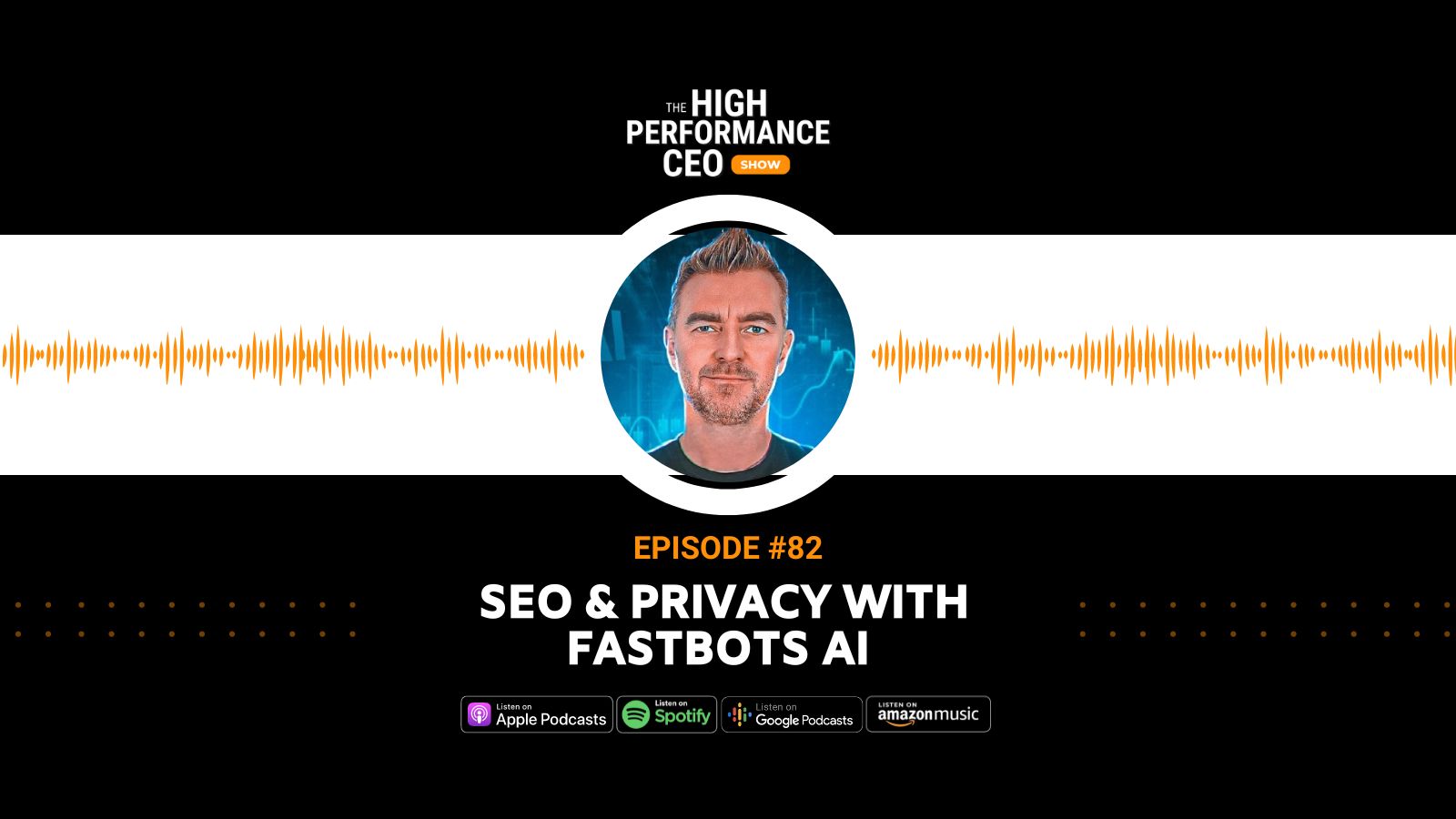19 min read
The CEO's Guide to Adaptability and Innovation
Sebastian Schieke
:
Apr 19, 2024 1:00:00 PM
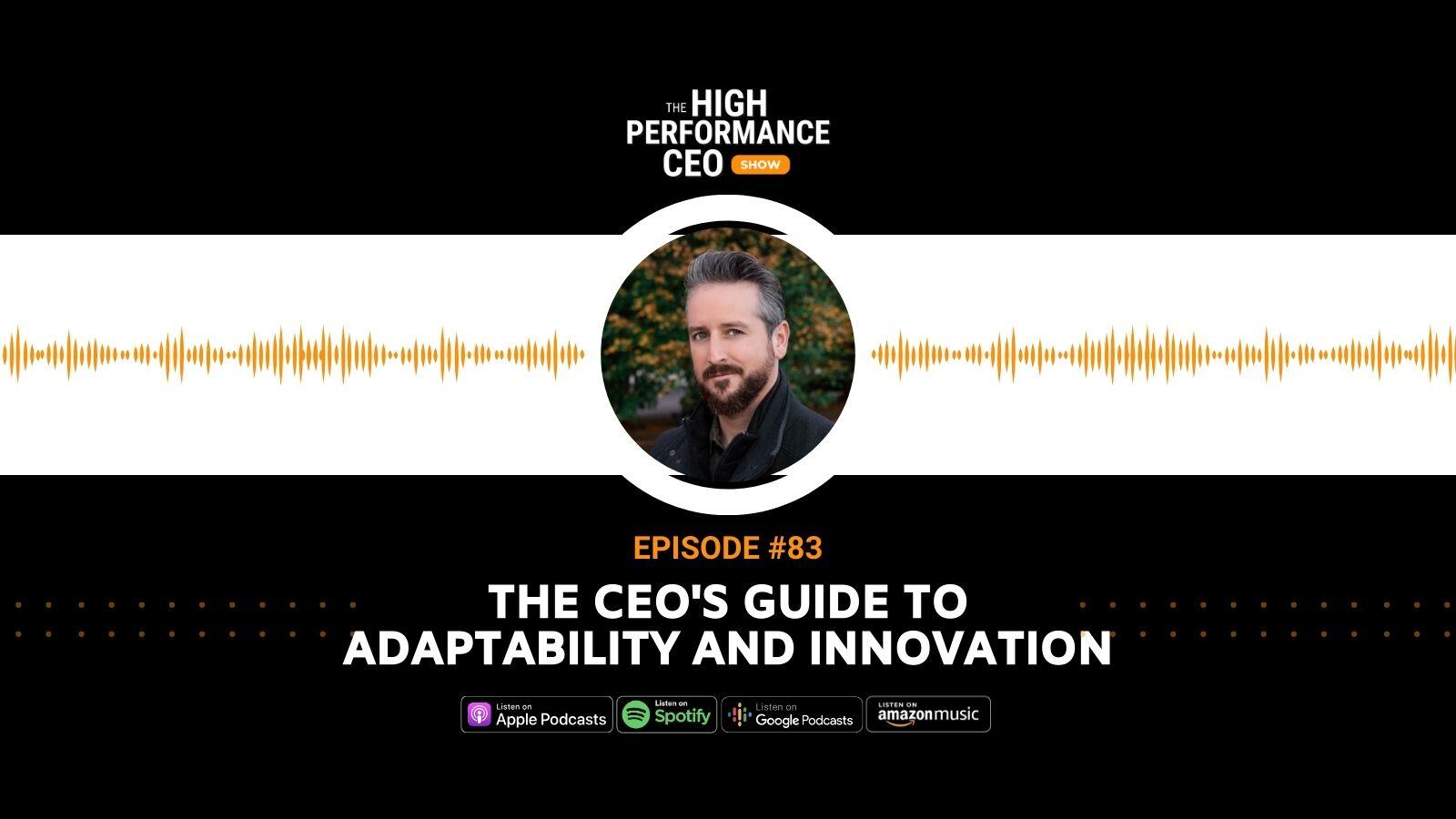
Episode Summary:
Discover how John McElligot transitioned from military service to becoming a tech entrepreneur, empowering his community in York, Pennsylvania, along the way. In this episode, John talks about how crucial it is to keep up with technology, the importance of investing in our local communities, and how sticking with it can turn tough times into opportunities for entrepreneurs. His insights are like a gold mine for CEOs who want to boost their adaptability and bring fresh innovation into their leadership and strategies.
About John McElligott:
- Former combat engineer turned technology entrepreneur.
- Active community leader in York, focusing on harnessing technological advancements.
- Pioneered innovative solutions in the tech field, emphasizing the importance of adaptability and community investment.
Key Takeaways:
- Adaptation to technological changes is crucial for business growth.
- Investing in the community can really boost the local economy and help people out a lot.
- Strategic resilience and adaptability are key drivers of success in entrepreneurship.
Why It's Important for CEOs Like You
This episode drives home how important it is for today's CEOs to be adaptable and focus on the community. Listening to John McElligot's experiences, you get actionable tips on using technology to win in business and improve society. It's all about thinking ahead and being flexible - these aren't just ways to get by, but the keys to really thriving in today's quick-changing market.
What CEOs Can Start Doing
- Evaluate your business's technology adaptation strategies.
- Engage in community-focused initiatives and investments.
- Cultivate resilience and adaptability within your leadership and organizational culture.
Conclusion
In our interview with John McElligot, we really got into how adaptability is key to thriving amid tech revolutions. John's way of blending business with community service is a master plan for any CEO looking to ace it with innovation and making a difference. He's all about embracing tech changes, returning to the community, and staying strategically resilient. That's how leaders can steer their companies to win big and create a lasting positive effect on their communities and sectors.
Chapters
Introduction to John and Discussion on Change (00:00 - 01:00)
Sebastian welcomes John and briefly discusses the inevitable nature of change in technology and business.
John's Background and Initial Career (01:01 - 03:30)
John shares his journey from military service to becoming an entrepreneur, highlighting his shift from combat engineering to starting a photography business.
Challenges in the Photography Business (03:31 - 08:00)
Discuss the disruption in the photography industry due to technological advancements and how John adapted his business model in response.
Entrepreneurial Shift and Tech Startup (08:01 - 12:00)
John talks about his transition to tech entrepreneurship, focusing on creating a platform for prosumer photographers and musicians.
Community Focus and Local Investment (12:01 - 16:00)
John emphasizes his commitment to his community in York and how he leveraged local resources and networks to fund his business initiatives.
Adaptation and Future Plans (16:01 - 21:00)
Discussing the importance of adapting to market and technological changes, focusing on future technologies like robotics and AI.
Read the full transcript here
-
Transcript
Sebastian Schieke (00:02.334)
John, welcome to the show.
John (00:05.71)
Morning. Thank you, Sebastian, for having me on. I appreciate the flexibility and the jumping around a little bit, but I'm super pumped to be doing this. This is going to be a lot of fun.
Sebastian Schieke (00:13.954)
Yeah, me too. We had a pre-call and I was really inspired by the opportunity to have you on the show. One thing, looking at your profile on LinkedIn, I have to disagree on one small part. You said, you said, change is coming. I say change. I say change is there.
John (00:26.142)
What's that?
John (00:31.937)
I know I need to update it. I remember when I created it, it was the big thing, it was like nine years ago when I was really heavily focused on AI and robotics and this is coming, it's coming. So I think the change has come and it's gone and now this craziness is happening.
Sebastian Schieke (00:42.626)
Yeah.
Sebastian Schieke (00:49.402)
Yeah, we just talked, we just said that as we record this week, figure one has been released, or has been made public, show to the world, a chat GPT robot, which is basically speaking to you, it replies to your orders, it can make decisions. And
Yeah, pretty crazy. And I mean, you are the man of robots, that's your profession. And so this episode, we wanna talk a lot about robots and how they will change the world or already changing the world. But before we go into this, I mean, you have such an amazing story and you probably told it many times, but it really inspired me last time when we had a pre-call. So how did you got to where you are right now?
John (01:44.442)
Yeah, so I guess a little bit of my background. So currently I live in a little town in Pennsylvania called York, Pennsylvania. If you've ever had a peppermint patty or any of your listeners have ever had one, it's kind of like our claim to fame. Also first capital United States, the Articles of Confederation were actually drafted up the street from my house. We were major player in World War II. There was a plan that came out of our town and I can talk a little bit about that later called the York Plan that ended up getting adopted by the whole nation. But you know, typical Rust Belt town,
Sebastian Schieke (02:08.056)
Uh huh.
John (02:12.678)
former manufacturing, still a lot of manufacturing here. But we used to be this manufacturing powerhouse and like a lot of small towns in the United States, we're a part of the Rust Belt. Luckily though for us though, so we do have a lot of advanced manufacturing here. And because Pittsburgh is in Pennsylvania, we have a lot of robotics and AI out of Carnegie Mellon and the National Robotics and Engineering Center. But originally I'm actually from Springfield, Massachusetts. And when I was eight, my family decided to become missionaries. So I actually grew up in the United Kingdom. So my dad started churches and
England, Ireland and Scotland. I came back when I was 18 to go to school. So I came back, I went to college in the United States. I ended up joining the Marines. I was a combat engineer. So like combat engineers do like seven different things, but my specialty was breaching and explosives. So that's kind of where I learned engineering, but I mostly just blew things up. I did get married very young, not married anymore. And all I ever really wanted to be was in the military. So I was focused very heavy on I wanted to be
I was in the Marines. I was going to do a lap move over because the Navy, it's actually the Marines is a division of the Navy. And so I wanted to be a Navy SEAL. And I like jumping out of planes and blowing things up. And my wife at the time did not want that life. And so I decided to give it up. Go ahead.
Sebastian Schieke (03:26.83)
It's a tough training, Navy SEALs. I mean, I read some articles and saw a couple of videos. Kind of big challenge.
John (03:29.397)
Yeah.
Sebastian Schieke (03:41.527)
Uh.
Sebastian Schieke (03:44.959)
Hmm.
John (03:55.201)
Yeah, yeah,
John (04:08.502)
big part of me is in planning. And so I thought, all right, I'll work a job loosely related to what I went to school for. I went to school for criminal justice. And I'll work as many hours of overtime as I could. And half the money is gonna go into a bank account for a day that I'm gonna quit my job. I put it on a calendar. I worked right up to that day. I walked into work. I'm like, you're a jerk, you're a jerk, you're cool, you're a jerk, I'm out. I haven't had to work for anybody since. It's been like 20 years, 20 plus years. The other thing though, so my ex-wife was actually a former model.
And in the modeling world, one of three things typically happens to models. They either age out completely and then end up not getting any more work. They do very, very well and kind of become famous and get into acting and different stuff. Or they very often become photographers. And right at this time period was kind of like at the very beginning of digital. So all of the all of the most successful photographers were just like old white dudes. And because I'm a big researcher, like the idea was that as.
as we live off my savings and I'm touring, we'll build another business, which was the photography business, and that would begin to take over for our income. Now, I didn't know anything about photography. I actually didn't know anything about business. Like, you know, I didn't go to school for business. I was in the military, I was very hierarchical, very structured, and so I thought, all right, well, I've got to figure out what makes a successful photography business. So I actually started talking to some of these older photographers, and they were all telling me like, oh, well, it's this, and you've got to have an eye, and it's natural talent, and I went to this school, and that.
And when it came down to it, I was like, the thing that's made you successful is just time. Because they would shoot, and then they would send stuff in to get developed, or they'd have a darkroom, they'd develop it themselves, and then they would get better. And so when I started talking to them about digital, you know, at the time it was very grainy, it was very expensive, they were like, oh, this is never gonna take off, people are never gonna want it. But I saw the value in the digital is, not in the image quality, it was the immediate feedback. You know, you could shoot, yeah, you could shoot lifetimes worth.
Sebastian Schieke (05:44.415)
Hmm.
Yeah.
Sebastian Schieke (05:58.75)
But exactly.
John (06:03.518)
And so that's what I did. The other half went into buying a bunch of digital. Fast forward several years, you know, things are going great. We're in New York, we're thinking we're gonna get signed. We're working with some pretty big labels. And then all of a sudden, all the original acts got canned. And this was like right around the time that the music industry was trying to figure out like how to handle Napster and streaming and all this other stuff. And instead of embracing the innovation, the way they responded was create American Idol. And so it was like right when that was created.
All the original acts were gotten rid of and then everything started getting repackaged. So again, there's another big upheaval in my life, not knowing what I was going to do next. Thought about going back into the military for a very short period of time. I actually was training to become a SEAL and I thought, I can't do this. The Marines did a number on my body. I don't want to be the guy in Afghanistan or Iraq that's kind of the liability. I step on a rock wrong or something. And so I actually ended up shooting weddings and photography with them.
Sebastian Schieke (06:53.827)
No.
John (07:01.174)
with my ex-wife, so we started running the business together. I modified all my rifle slings and stuff like that to hold cameras instead of rifles. I would repel and free climb from buildings and bridges. I did it very often for architectural firms of the state and they'd pay a lot of money. It was like 25 grand a day. This was all pre-drone. So, we were actually doing very well. We were making more money than we could actually spend. It was just me, my ex-wife, and we had one assistant.
It was a lot of fun. You know, it turns out I was actually a really good photographer. We started winning a lot of awards and everything was going great. This was right around the time period when it was trendy for husband and wife teams and you know, the first generation were kind of like rock star photographers. Like we all looked like we were in bands and stuff like that. And then all of a sudden a bunch of new photographers pop up out of nowhere, like just everywhere. Like they're just, it's like they came out of the woodwork. And so a bunch of us got together in Lancaster, which is a town not too far from where I am at one of the bars downtown.
Sebastian Schieke (07:39.786)
Hmm.
John (07:58.454)
And it turns out what was happening was there was a whole new generation of photographers that were buying like, you know, Canon Rebels and cheap Nikon cameras. And basically all the expensive algorithms that were on our equipment was now all getting put on prosumer equipment. And you know, these guys, yeah, you know, these guys were learning how to do stuff on YouTube, throwing up websites that cost next to nothing, and then actually shooting for free to build their portfolio.
Sebastian Schieke (08:08.914)
Yeah.
Sebastian Schieke (08:12.766)
Disrupting.
John (08:22.498)
So we're all starting to panic, right? And trying to figure out like, well, how do we stop this? And the one person says, well, why don't we, why don't we pull all our money? We'll create a co-op. And then that way, you know, we can, we can pull all our marketing power and you know, we can refer each other. And the next person said, and they actually did this. They said, well, why don't we go online and pretend to be their clients and rate them bad. So you have people on, you know, like professionals on Yelp, go, oh yeah, they showed up to my wedding drunk. I just crazy stuff. And it got around to me and I'm like.
Sebastian Schieke (08:41.938)
Oh
Sebastian Schieke (08:47.21)
Ugh.
John (08:49.678)
Oh no, we're the music industry trying to stop the iPod. You know, like, I'm thinking, where the people we put under? And so, you know, at that point I was like, well, I guess this ride's over. Because I knew that, like, you know, I couldn't stop this any more than the guys we put out could stop it, or the music industry, you know? And so I thought, all right, well, this isn't going away. So instead of fighting this new generation, I needed to find a way to help them. And, you know, that was my philosophy was like, all right, I...
Sebastian Schieke (08:53.134)
Yeah, yeah, exactly.
Sebastian Schieke (09:05.126)
No, exactly.
John (09:18.698)
The one thing, they're getting very good at the art piece of it, but they're not making money. They're not figuring out the business side, and I was very good at that. That's why I created my first tech startup. It essentially started in the photography space and then began to branch off into bands that had built their own recording studios that had all this recording equipment and people that were becoming videographers and stay-at-home moms. It was squarely focused not on professionals, not on amateurs, but this prosumer.
Sebastian Schieke (09:25.962)
Hmm.
John (09:47.382)
this middle ground of people that were getting very, very good, but they didn't know how to make money at it. And so I didn't know anything about tech, so I started going to, there happened to be like a founders meeting up in Lancaster. There were a couple of guys that lived there that had some pretty significant exits, came back, wanted to create like a kind of a tech ecosystem. And me going in, I had no idea what I was doing, but I built a minimum viable product and it was working. And so I had a chance to explain to them what it was doing. And so they actually ended up joining my board.
and we're really excited because people were actually using this thing that I built. They were like, all right, it's time to raise money. I was like, I've never raised money to do anything before. It's a brand new world. They said, all right, well, you got to go to San Francisco, got to go to New York. I'm like, all right, if that's what I'm supposed to do, then that's what I'll do. I'm out in the valley. I'm in Silicon Alley. I'm pitching to some of the early investors in Facebook, some pretty big names in the VC world. They're all...
Sebastian Schieke (10:42.023)
Hmm.
John (10:44.054)
They're all saying the same thing. They're like, you know, totally get it. My daughter is getting into photography. I had a band when I was in high school. I'd love to be able to like, you know, record an album and a video and excuse me. And, and they, but they all said, there's no way we're going to invest in you in York, Pennsylvania. Like we don't know where that is. It's the middle of nowhere. You're not going to get talent. You're right. Right. I mean, you know, but you know, if you've ever spent time in the valley, that was, especially during this time period, that was very common. Like that thinking, like everything tech, all tech was built here.
Sebastian Schieke (11:01.562)
Is it still US?
Sebastian Schieke (11:13.362)
Yeah.
John (11:14.286)
And in a lot of ways it was, all the money was there. Yeah. But I was actually very committed to the community I lived in. So growing up in a missionary family, we moved around a lot. I didn't really ever feel connected to anywhere that I lived. So I made the decision that when I moved to York, I was gonna make it my home. And I was gonna do everything I could to try and help it. Like when I moved there, empty storefronts, it was an old, typical Rust Belt manufacturing town. And...
Sebastian Schieke (11:16.519)
It was, yeah.
John (11:41.054)
And so I was committed to building this technology company in York. I had a philosophy and I still think it's true that in the first and second industrial revolutions, the towns like York did great. You know, there were, there were young entrepreneurs that were embracing the steam engine and then as they, you know, as they grew their businesses, then they began to see electricity and they were maturing and getting older. So they embraced that technology and all of a sudden, you know, their businesses were exploding.
Something interesting happened though in the third industrial revolution. I've seen the same pattern all across the United States is the people that started the companies were then retiring and giving the companies to their kids. And they went from risk takers to caretakers. And that some switch flipped because all the little towns used to be innovative, industrial, like really embracing new machines and new methodology. And then all of a sudden that leadership
Sebastian Schieke (12:27.559)
Yeah.
John (12:36.398)
different. And all of a sudden, new technologies all became threats. And so everything kind of became clamped down. Now I saw this happen, and I was convinced that like, okay, so what's about to come next is going to make this other stuff pale in comparison to it. So somebody has to do like be the first like the archetype here in our town. And so that was my goal. I wanted to be the first, you know, funded tech startup there. So I came back to York Coast actually really bummed out because I was very committed. I wasn't going to move. And I thought, all right.
I didn't need to raise a ton of money. It was like quarter of a million dollars or something like that. And I thought, all right, there's gotta be a way for me to raise money here. So while our town was very impoverished and there weren't a lot of businesses downtown, you know, our baseball stadium, we got a baseball stadium built by the community, like $25 million all funded from within the community. You know, Market View Arts, like this art gallery goes up, $16 million all funded within the community. I'm like, where the heck is all this money coming from? Because our town is like decimated, but there's these pockets of all this money.
So I did research and I found that, you know, for a town we were like three square miles, we had like two billionaire families and lots and lots of old money and tens of millions, hundreds of millions, you know, just sitting on the sidelines but doing things like that. And so I thought, all right, well, I'll just talk to those guys. And not being from York, I would give the pitch to my company, you know, trying to get to some of these powerful people. And in response, it was almost like everything that I said didn't matter. People responded with two questions.
Sebastian Schieke (13:41.866)
Oh.
John (14:04.334)
Where'd you go to high school and who are your parents? And I was like, what does that have to do with anything that I just told you?
Sebastian Schieke (14:11.005)
You are not part of the family.
John (14:12.786)
Right, right. Well, I mean, you figure because York was like first capital United States. I mean, old United States, you know, some of these families have been here for generation upon generation upon generation. So and where you went to high school determined your social caste. So like, you know, like some schools are better than others. And so I'm just out of pure frustration. I'm like, man, what is going on here? Like, like, how am I going to get to these guys? So what I did was I googled all the most powerful people in town.
And then, do you remember the app Foursquare? Like the check-in app? Yeah, right, right. So what I did was I Googled all the most powerful people in town and then I Googled every cause they cared about, everyone they'd hired in leadership positions over the last 30 years, who those people's kids were, their grandkids, and I built this big matrix of people I wanted to get to and how I was gonna get to them through all these different people.
Sebastian Schieke (14:45.162)
Mm-hmm. Yeah, yeah, exactly. Yeah, yeah. John checked in at the local restaurant.
John (15:09.758)
And then I took the map of Foursquare and I blew it up really big so I could figure out where everyone would go on a daily basis. And for six months I ran from place to place, getting there like five minutes before. Sometimes my friends would be there, you know, dressed up as investors and as soon as they'd walk in the door my friends would go, this seems like an incredible investment opportunity. You know, like Monocle falls out of their eye. Other times I just have my phone and I'd be like, oh yeah, we're this many users.
there wouldn't be anyone on the other end. I'd be pitching to like nobody. It was all true. I never lied. I was just loud. I didn't lie. I was just loud. And if it didn't happen the first time, by the second or third, they'd come over and go, I hate to interrupt, but you got to meet my grandpa. So I found myself sitting in front of all of the most powerful people in town. They started writing checks. Like it was nuts. I ended up raising about a half a million dollars. And yeah, it was, you know, again, I've been very good at seeing the curve. The key is especially, and we can get into it a little bit later because
Sebastian Schieke (15:56.798)
Amazing idea.
Sebastian Schieke (16:01.961)
Mm.
John (16:05.45)
Now that AI is everywhere, it's not whether you use AI, it's whether you use it differently than everyone else. In an age where it used to be like knowledge is power and it's like you can Google anything. And knowledge is about to change. It's secret knowledge. Like if you're using it differently, like you're using it in ways that are unexpected, then you can do like the kind of like social hacking that I did. Now it was really interesting because while everybody else was trying to keep me out, the people at the top wanted me to succeed.
And it was interesting because I think they'd been being told things that they wanted to hear over and over. But then the reality of looking around the town, it was like, all right, I put all this money into this thing and you said it was going to change downtown. It didn't change downtown. What's happening? And I started to realize that this hierarchy was built in a way where people didn't want to lead. They were waiting to take their turn. Like we didn't have leaders, we had replacements. And so the people that were, you know, right below the top were like, okay, all we got to do is just keep the boat going.
I was seen as something that was risky because I was proven I'm not from York. Nobody really understood anything about technology. We built this product. It was actually doing pretty well, but again, I hit that ceiling. I was overpaying for talent. I couldn't get the talent I needed. I couldn't raise a Series A. A lot of the stuff that I was told was actually true. My business partner at the time ended up leaving. We had no money left. It was a really crazy time.
Honestly, it drove a little bit of a wedge even in my marriage because the professional photography business was still running while I was trying to help what my ex-wife saw as our competition. I made all the first-time entrepreneur mistakes, became obsessed, really laser-focused, ignored everything else around me. I ended up actually having a sunset at that company. It was probably the hardest thing that I ever did.
pivots and things that I did, but ultimately it just, it wasn't going to do the thing that I wanted it to do. In York, you don't fail and get a second chance. We're a German-Dutch honor culture. This is not like a fail fast fail. Yeah, this is like, there is no fail forward. There's fail get out. You know what I mean? It's like you're blacklisted. But interestingly enough, I go to my first investors, the local ones, and they go, man, we can't believe you kept going.
Sebastian Schieke (18:11.966)
Hmm. Okay. You fail and you're done.
John (18:30.622)
Like they were like amazed that I just kept going and going and going. So when I sunset to the company, they said, all right, well, when you've got another idea, come back. And like, this was, you know, I, this was not what I expected to hear. So I was like, all right, I still believe technology is the key, but it's not going to be software, like software is like invisible. It's not going to be apps, you know, like York is a touch, see, feel kind of place. So I thought, all right, well, what is it we're good at? Because, you know, instead of me trying to duplicate Silicon Valley,
What is it that we're actually good at that I could build off of? So I did more research and it turned out that while a lot of manufacturing towns had collapsed, our manufacturing was actually really strong. Like in York County, it was like we were building parts for like, you know, the Mars Rover and like tanks and like our defense, like supply chain here was very, very good, a lot of precision equipment. So, so I was like, all right, well, let me learn about manufacturing. So I started going on factory tours. And I
I became amazed at what humans and machines together could create. It was astonishing to me. But then I got very nervous because I saw the same two things. I saw an aging workforce with no kids coming in and empty machines. So I was like, if this is what we're really good at, this is going to be a major problem because this cliff is coming. So I thought, all right, what's the technology that we can use to manufacture? I was like, robots. Machines that can operate other machines. I thought, York's good at that. We build machines.
Sebastian Schieke (19:36.682)
Mm-hmm. Yeah.
John (19:54.346)
Robots are just machines, we'll understand that. Lucky for me, Pennsylvania has Pittsburgh, and so I kind of hacked my way into Carnegie Mellon and the National Robotics and Engineering Center just wandered around campus, started knocking on doors and running into like different professors. Finally got, found myself getting invited to like see some of the stuff happening at NREC, and I was astonished because, you know, it was real goofy stuff. You know, we talked a little bit earlier about, you know, figure in some of these new humanoid robots. The very early ones were all goofy and falling over.
But the reality is, when I started to see researchers getting really excited, they were like, yeah, you don't understand. I get that it's just going like this, but it knows what a doorknob is. And like, you know, like it had just taken so long to get these robots to do anything that finally they were starting to do things. And so all the researchers, you know, they all said the same thing. They're like, it's coming, but it's not here yet. So I knew if I went back to York and started talking about robots, I would be burnt as a witch.
Sebastian Schieke (20:40.295)
Yeah.
John (20:48.206)
You know what I mean? They'd run me out of town. If they thought I was crazy talking about the iPhone is going to be a big deal. And so like, if I started talking about artificial intelligence and robots, that's it. And so I thought, all right, I can't be talking about this stuff right now, but you know, always had an eye on it. I was like, okay, it's going to happen. It's going to happen. Not right now, but it's going to happen. So I thought, all right, I got to capitalize on the fact that they're willing to give me more money. So what can I do that in the meantime? Well, you know, I can, I can get a track record of success because I didn't want, you know, that company.
like the one company to be kind of the things I tried and it didn't work. And, uh, so I actually was like, okay, well they like building things. And so I got into real estate. So two and, uh, me and two former partners started a company and, uh, we grew very, very fast. We were going from. Is, did you lose me?
Sebastian Schieke (21:31.058)
We grew very, very fast. We were going from...
Sebastian Schieke (21:37.933)
Sorry.
John (21:55.382)
Yeah, is the audio not synced?
Sebastian Schieke (21:56.835)
Yeah, yeah, now it's good. Yeah, it's back. Sorry, there was some interruption.
John (22:01.23)
Okay. Oh, no worries. Well, why don't I do this? Why don't I? So I'm only hearing your echo right now, which is weird. Before I could hear you talk, and now I'm only hearing, sounds like the room noise.
Sebastian Schieke (22:13.091)
You only have my echo? Wait a second, was that an echo cancellation? Ah.
John (22:17.81)
What I'm saying is, I don't know if it's the echo, but before I was hearing you speaking into your microphone, now it sounds like there's a laptop microphone picking it up or something. It doesn't sound like...
Sebastian Schieke (22:27.847)
I'll wait and see.
Sebastian Schieke (22:41.592)
I just need to stop and restart the recording but it doesn't matter because we can stick it together.
John (22:47.726)
Okay, yeah, do you want me to just, I will do as I'll say.


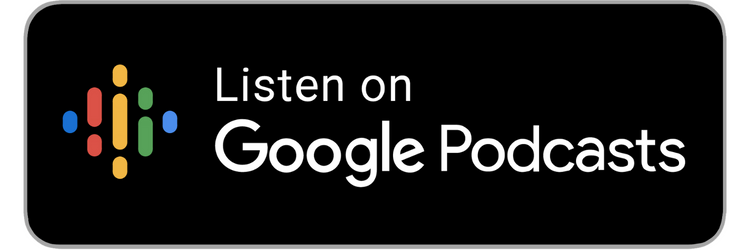

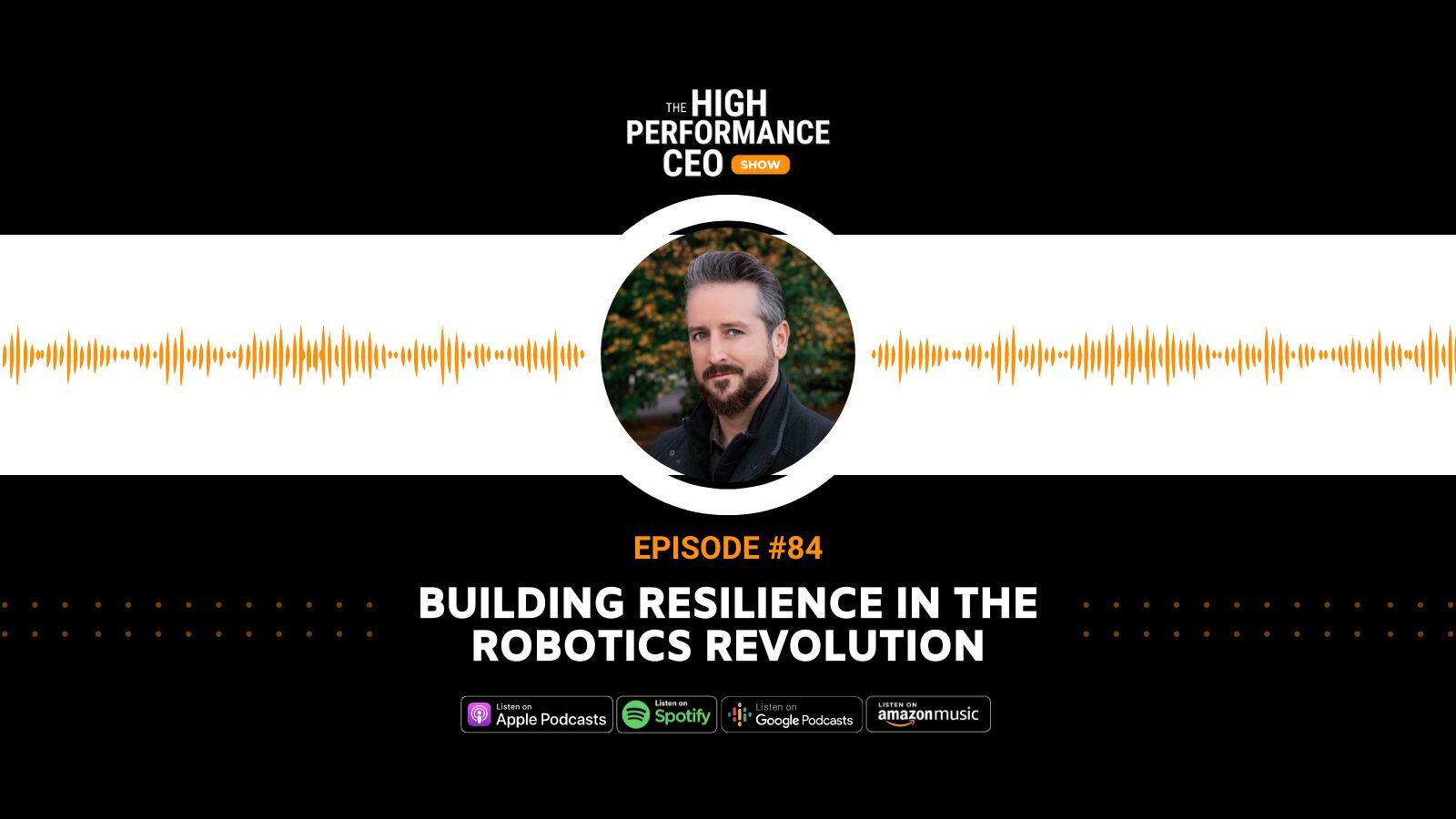
.jpg)
